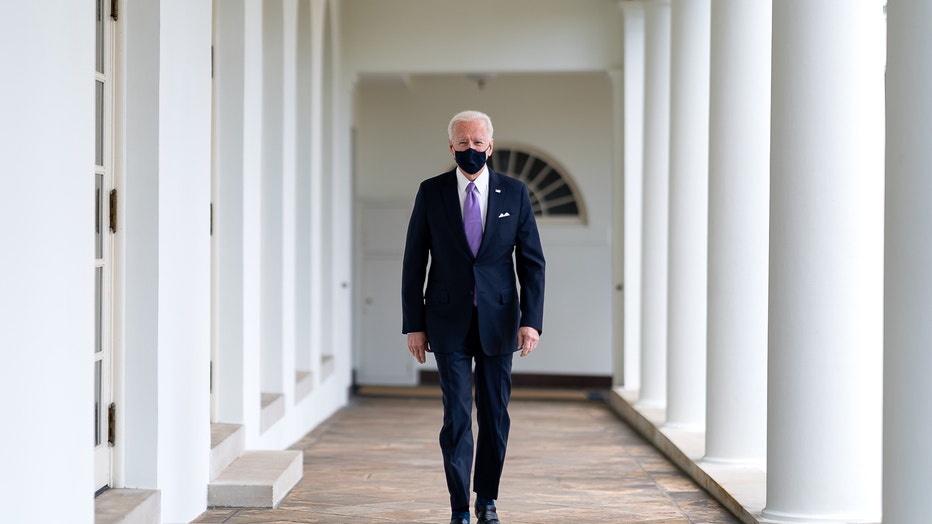President Biden orders airstrike against Iran-backed militia following rocket attacks against U.S.
U.S. carries out airstrike against Iran-backed militia in Syria
The U.S. military carried out an airstrike against an Iranian-backed militia stronghold in Syria Thursday.
WASHINGTON - The United States launched airstrikes in Syria on Thursday, targeting facilities used by Iranian-backed militia groups. The Pentagon said the strikes were in retaliation for a rocket attack in Iraq earlier this month that killed one civilian contractor and wounded a U.S. service member and other coalition troops.
The airstrike was the first military action undertaken by the Biden administration, which in its first weeks has emphasized its intent to put more focus on the challenges posed by China, even as Mideast threats persist.
"This proportionate military response was conducted together with diplomatic measures , including consultation with coalition partners," the Pentagon's chief spokesman, John Kirby, said in announcing the strikes.
"The operation sends an unambiguous message: President Biden will act to protect American and coalition personnel. At the same time, we have acted in a deliberate manner that aims to deescalate the overall situation in eastern Syria and Iraq.".

P20210121AS-0485: President Joe Biden walks along the Colonnade Thursday, Jan. 21, 2021, to the Oval Office of the White House. (Official White House Photo by Adam Schultz)
Biden administration officials condemned the Feb. 15 rocket attack near the city of Irbil in Iraq’s semi-autonomous Kurdish-run region, but as recently as this week officials indicated they had not determined for certain who carried it out. Officials have noted that in the past, Iranian-backed Shiite militia groups have been responsible for numerous rocket attacks that targeted U.S. personnel or facilities in Iraq.
Kirby, the Pentagon spokesman, had said Tuesday that Iraq is in charge of investigating the Feb. 15 attack.
"Right now, we’re not able to give you a certain attribution as to who was behind these attacks, what groups, and I’m not going to get into the tactical details of every bit of weaponry used here," Kirby said. "Let’s let the investigations complete and conclude, and then when we have more to say, we will."
A little-known Shiite militant group calling itself Saraya Awliya al-Dam, Arabic for Guardians of Blood Brigade, claimed responsibility for the Feb. 15 attack. A week later, a rocket attack in Baghdad's Green Zone appeared to target the U.S. Embassy compound, but no one was hurt.
Iran this week said it has no links to the Guardians of Blood Brigade.
The frequency of attacks by Shiite militia groups against U.S. targets in Iraq diminished late last year ahead of President Joe Biden’s inauguration, though now Iran is pressing America to return to Tehran’s 2015 nuclear deal. The U.S. under the previous Trump administration blamed Iran-backed groups for carrying out the attacks. Tensions soared after a Washington-directed drone strike that killed top Iranian Gen. Qassem Soleimani and powerful Iraqi militia leader Abu Mahdi al-Muhandis last year.
Trump had said the death of a U.S. contractor would be a red line and provoke U.S. escalation in Iraq. The December 2019 killing of a U.S. civilian contractor in a rocket attack in Kirkuk sparked a tit-for-tat fight on Iraqi soil that brought the country to the brink of a proxy war.
U.S. forces have been significantly reduced in Iraq to 2,500 personnel and no longer partake in combat missions with Iraqi forces in ongoing operations against the Islamic State group.
This is a breaking story, check back for updates.
DOWNLOAD THE FOX 2 NEWS APP FOR iOS and ANDROID

